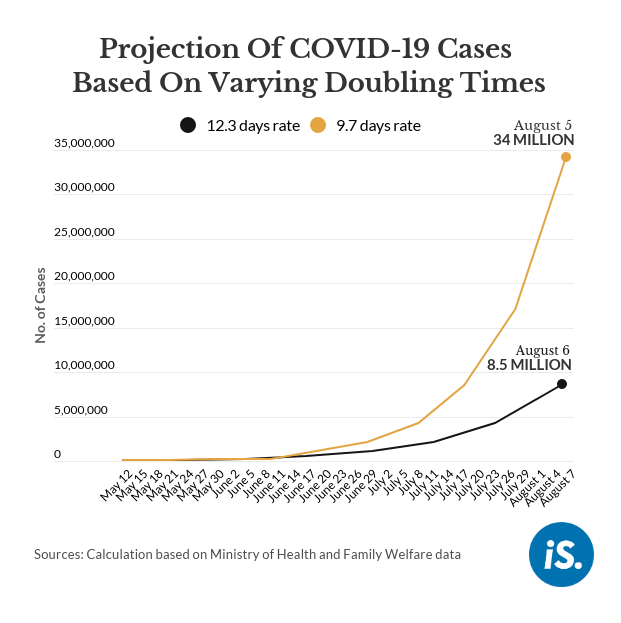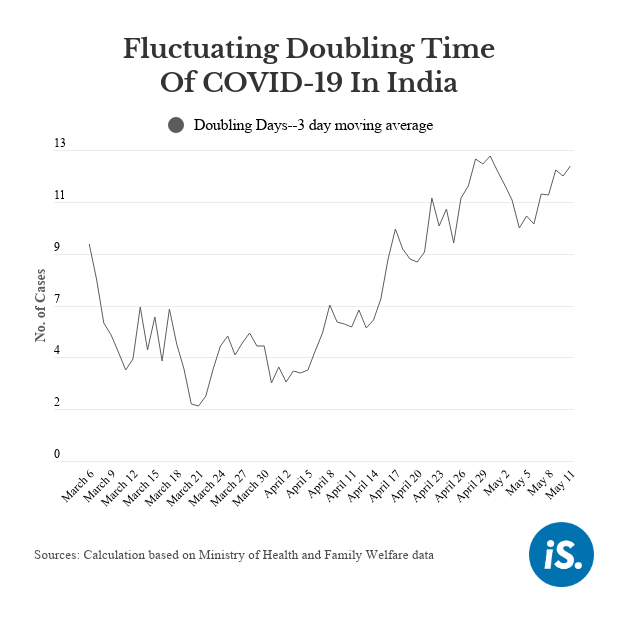12-Day Doubling Time Would Leave India With 8.5 Mn COVID-19 Cases By August 2020
The doubling time for COVID-19 cases in India has fluctuated between 10 days and 12 days since May 1, 2020. A difference of just three days could lead to an additional 25.7 million cases by August 2020, data show. If the current doubling time of 12 days persists, India could have 8.5 million cases by August 5, 2020. A lower doubling time of 10 days increases this projection to over 34 million cases.

Officials have repeatedly cited the longer doubling time to claim India's success in tackling COVID-19 but, even a higher doubling time would result in a substantial number of COVID-19 cases, as the data above show.
On March 24, 2020, the day Prime Minister Narendra Modi announced the lockdown, the doubling time of COVID-19 cases was 4.8 days. This increased after the lockdown, peaking at 13 days on April 30, 2020. The national doubling time fell to 10 days on May 4, 2020, the day the government eased the lockdown in some parts of the country, and rose to 12 days on May 11, 2020.
These estimates are based on three-day moving averages to smoothen day-to-day fluctuations in data. Cases have continued to increase at an average daily rate of about 6% since May 1, 2020, data show.

The doubling time of COVID-19 is not the only metric of India’s success against COVID-19 as IndiaSpend reported on May 1, 2020. Experts say more data on testing, the COVID-19 R0 in India (the number of people who would get infected by one COVID-19 positive person) and data on contact tracing would help understand the spread of the disease in India.
India’s lockdown, one of the most stringent in the world, has not led to a decline in the number of cases being reported every day. This is contrary to other countries, such as France, Germany and the United Kingdom, which decreased the number of cases reported daily within a month of lockdown.
On May 11, India reported 4,213 new confirmed cases. This is the largest single-day increase so far, and came 48 days after the beginning of the lockdown.
(Bharadwaj, an undergraduate at Yale University, is an intern with IndiaSpend. Khaitan is a writer/editor with IndiaSpend.)
We welcome feedback. Please write to respond@indiaspend.org. We reserve the right to edit responses for language and grammar.


